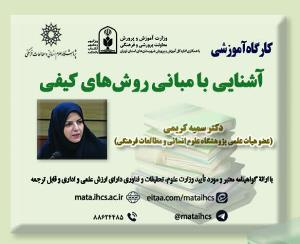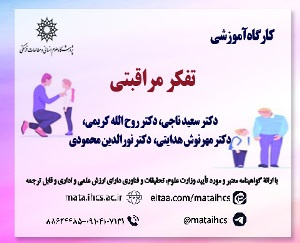بررسی انتقادی نگره ابن تیمیه درباره حسن و قبح عقلی (مقاله علمی وزارت علوم)
درجه علمی: نشریه علمی (وزارت علوم)
آرشیو
چکیده
حُسن و قُبح افعال همواره مورد استناد مذاهب کلامی و اندیشمندان مسلمان بوده است؛ آن سان که عدلیه و معتزله در قامت مروجان حسن و قبح عقلی برآمده اند و لیکن اشاعره بر مبنای شرعی دانستن تحسین و تقبیح اصرار ورزیده اند. در کنار این دو نظر محوری، ابن تیمیه حرانی با تأکید بر حسن و قبح عقلی، آن را به عنوان نظر سوم و بر خلاف دو دیدگاه اعتزالی و اشعری می شمارد. در این نوشتار تلاش می شود به این پرسش پاسخ داده شود که آیا می توان ادعای ابن تیمیه را در باب حسن و قبح عقلی پذیرفت. در واقع ابن تیمیه حرانی که معرفت عقلی را نسبی و غیر قابل باور دانسته و آن را به عنوان عنصر مستقل در فهم حقایق نمی پذیرد، تلاش می کند با تفکیک حسن و قبح ذاتی، منکر حسن و قبح ذاتی است و بر شرعی انگاری ثواب و عقاب تأکید دارد و معتقد است یک فعل نه شایسته مدح و ثواب است نه شایسته ذم و عقاب. او تأکید دارد که در برابر عمل آدمی استحقاقی در کار نیست. در این نوشتار ضمن تبیین دیدگاه ابن تیمیه و بررسی انتقادی نگاه او در زمینه ماهیت عقل و معرفت عقلی، تصویر ترسیمی از حسن و قبح از سوی او در دو مسئله انکار حسن و قبح ذاتی و تأکید وی بر شرعی انگاری ثواب و عقاب بررسی و نقد گردد؛ دیدگاهی که می توان آن را رویکرد تصحیح شده شمرد.A Critical Review of Ibn Taymiyya’s View on Essential Goodness And Ugliness
The goodness and ugliness of actions have always been cited by theological religions and Muslim thinkers; It's as if Mu'tazila have become the promoters of essential goodness and ugliness, but the Ash'arites have insisted on legitimacy of goodness and ugliness. In addition to these two central views, Ibn Taymiyya al-Ḥarrānī, emphasizing the essential goodness and ugliness, considers it as the third view and contrary to the two views of Mu'tazila and Ash'ari. In this article, an attempt is made to answer the question whether it is possible to accept Ibn Taymiyyah’s claim about the essential goodness and ugliness. In fact, Ibn Taymiyya al-Ḥarrānī, who considers intellectual knowledge to be relative and unbelievable and does not accept it as an independent element in the understanding of facts, tries to distinguish essential goodness and ugliness, he denies essential goodness and ugliness, and emphasizes on the legitimacy of reward and punishment and believes that an action is not worthy of praise and reward, nor is it worthy of ugliness and punishment. He emphasizes that there is no entitlement to human action. In this article, while explaining Ibn Taymiyya’s point of view and critically examining his view on the essence of reason and intellectual knowledge, his depiction of goodness and ugliness in the two issues of denying essential goodness and ugliness and his emphasis on the legitimacy of rewards and punishment are reviewed and criticized, a view that can be considered a corrected approach.







